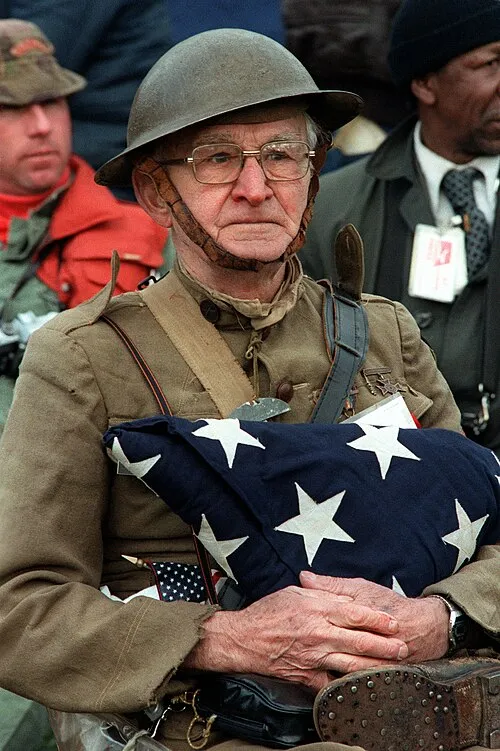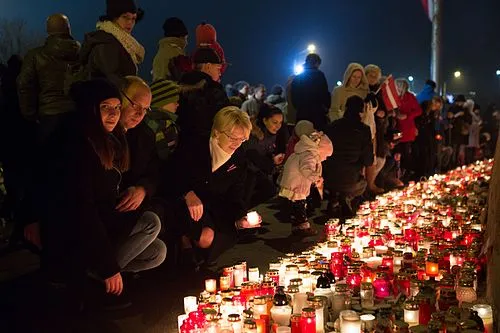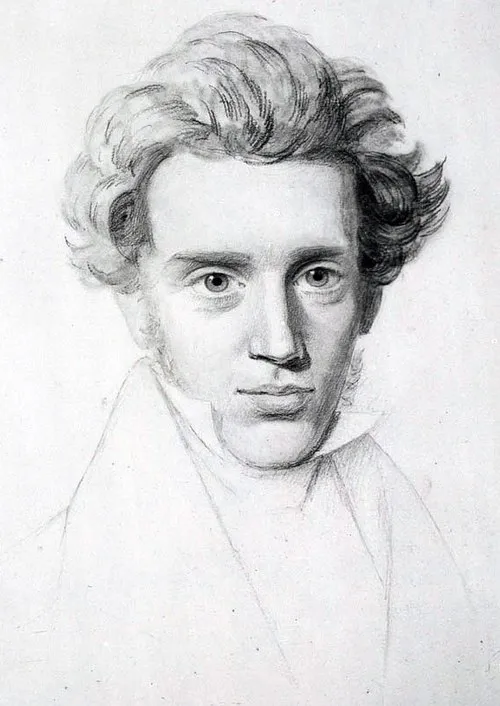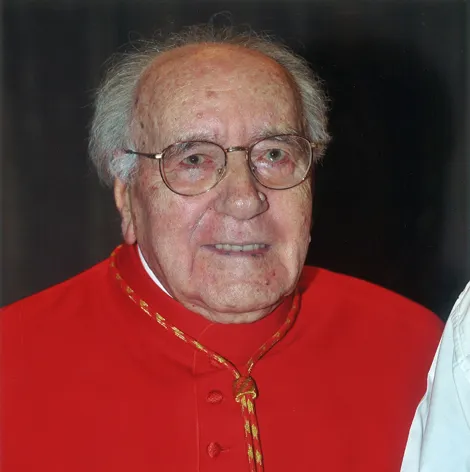In 2022, during the Russo-Ukrainian War, Ukrainian armed forces successfully reclaimed the city of Kherson as a result of a strategic two-month southern counteroffensive.
On November 11
23
Important Days
67
Important Events
337
Births and Deaths
recorded.
Holidays and Occasions
Events
Births and Deaths

The Birthday Celebration of King Jigme Singye Wangchuck: Honoring a Visionary Monarch of Bhutan
In the serene landscapes of Bhutan, the birthday of King Jigme Singye Wangchuck is a cherished occasion that holds great significance for the nation. Born on November 11, 1955, King Jigme Singye Wangchuck is not just a royal figure but a transformative leader whose reign has profoundly shaped modern Bhutan...

Children's Day in Croatia: A Celebration of Children's Rights and Joy
Children's Day, celebrated in Croatia on the first Sunday of October, is a special occasion dedicated to the youngest members of society. This day emphasizes the importance of children's rights, their well-being, and the promotion of a nurturing environment for their growth and development...

Commemoration and Reflection: Observances of the End of World War I
The conclusion of World War I on November 11, 1918, marked a pivotal moment in history, forever altering the global landscape. The date signifies not only the end of an era defined by unprecedented conflict but also the beginning of extensive commemorative observances aimed at honoring the lives lost and reflecting on the profound implications of the war...

Armistice Day: Remembrance and Reflection in New Zealand, France, Belgium, and Serbia
Armistice Day, observed on November 11, honors the end of World War I and is a day of remembrance for those who served in the armed forces. Across various nations, particularly New Zealand, France, Belgium, and Serbia, this day is marked with ceremonies, memorials, and moments of reflection...

Poland's National Independence Day: Commemorating the 1918 Liberation
National Independence Day in Poland, celebrated annually on November 11, commemorates the country’s regained independence in 1918 after over a century of partitions. This pivotal moment in Polish history marks the end of foreign domination by Prussia, Russia, and Austria, and signifies a newfound sovereignty...

Remembering the Sacrifices: The Significance of Remembrance Day
Remembrance Day, observed on November 11th each year, stands as a solemn tribute to those who have lost their lives in military conflicts, particularly during World War I and World War II. Primarily celebrated in the United Kingdom and the Commonwealth of Nations—including countries like Australia and Canada—this day is marked by various ceremonies, parades, and moments of silence...

Veterans Day: Honoring Our Military Heroes
Veterans Day, observed annually on November 11, is a day dedicated to honoring the men and women who have served in the United States Armed Forces. Initially known as Armistice Day, the holiday commemorated the end of World War I, marked by the signing of the Armistice on November 11, 1918...

Independence Day: Celebrating Angola's Liberation from Portugal
Independence Day in Angola, celebrated on November 11, marks a pivotal moment in the country’s history— its liberation from Portuguese colonial rule in 1975. This day not only symbolizes the victory over colonialism but also signifies the beginning of a new era of sovereignty, national pride, and social rebirth for Angolans...

The Independence of Cartagena: A Legacy of Freedom
The Independence of Cartagena is a pivotal chapter in Colombia's history, symbolizing the struggle for freedom and self-determination. This coastal city, known for its rich colonial heritage and picturesque architecture, played a crucial role in the liberation movement against Spanish rule...

Lāčplēsis Day: Celebrating Latvia's Victory Over the Bermontians
Lāčplēsis Day, observed annually on November 11, is a significant national holiday in Latvia, commemorating the victory of Latvian forces over the Bermontians at the Battle of Riga in 1919. This pivotal moment in Latvia's struggle for independence reflects not only military valor but also the nation's enduring spirit and identity...

The Significance of Carnival Opening on 11-11 at 11:11
The carnival season, a time of joy and festivity, is a cherished tradition across various countries, especially in Germany and the Netherlands. It kicks off on November 11 at exactly 11:11 AM, signaling the start of vibrant parades, colorful costumes, and an array of cultural events...

National Education Day in India: Importance, History, and Celebration
Every year, November 11th marks National Education Day in India, a day dedicated to the memory of Maulana Abul Kalam Azad, the first Minister of Education of independent India. This significant day emphasizes the importance of education in shaping the future of the nation and honors the contributions of Azad towards the educational framework of the country...

Republic Day in the Maldives: History, Celebrations, and Significance
The Maldives, known for its stunning beaches and vibrant culture, celebrates its Republic Day every year on the 11th of November. This significant day marks the establishment of the Maldives as a republic, a momentous event that took place in 1968...

Understanding Singles' Day: The Biggest Shopping Event in China
In recent years, Singles' Day, celebrated on November 11th, has transformed from a niche holiday in China into a global shopping extravaganza. Originally conceived as a day for single people to celebrate their self-love, this day has grown to become the world’s largest online shopping event, surpassing even Black Friday and Cyber Monday...

Discover the Joy of St. Martin's Day Celebrations in Sint Maarten
St. Martin's Day, or Sint Maarten, is a cherished celebration in the Kingdom of the Netherlands, particularly on the island of Sint Maarten...

Celebrating Women's Day in Belgium: A Tribute to Empowerment and Equality
Every year on March 8th, International Women's Day is celebrated worldwide, with Belgium being no exception. This significant day serves as a powerful reminder of the ongoing struggle for gender equality and the remarkable achievements of women across various sectors...

Pepero Day: Embracing a Sweet Tradition in South Korea
Every year on November 11th, South Korea celebrates Pepero Day, a unique occasion dedicated to the delicious snack called Pepero. Originating in Korea in the 1980s, this day has grown into a cultural phenomenon, symbolizing love and friendship...

Bartholomew of Grottaferrata: The Guardian of Monastic Tradition
Bartholomew of Grottaferrata, a prominent figure in the history of the Catholic Church, is celebrated for his contributions to monasticism and the preservation of Christian traditions during a tumultuous time in medieval Italy. Founded in the 11th century, the Abbey of Grottaferrata stands as a testament to his dedication and faith...

Saint Martin of Tours: Life, Legacy, and Feast Day Observances
Saint Martin of Tours, born in 316 AD, is one of the most revered saints in the Roman Catholic Church. His life and deeds have inspired countless individuals, and his legacy continues to be celebrated especially on November 11th, known as the Feast of Saint Martin...

Menas: Historical Significance and Legacy
Menas, a prominent historical figure, is often overlooked in discussions of early medieval leaders and their impacts on society. His contributions to the political, cultural, and religious landscapes of his time are significant, and understanding them can provide valuable insights into the era he lived in...

Exploring Mercurius: The Coptic Saint of Protection and Guidance
Mercurius, also known as Saint Mercurius or Abu Sayfain, is a prominent figure in Coptic Christianity, revered for his exemplary faith and miraculous deeds. Celebrated by the Coptic Orthodox Church and various Christian communities, his legacy is one of hope, protection, and divine guidance...

Søren Kierkegaard: The Father of Existentialism and His Influence on the Lutheran Church
Søren Kierkegaard, born on May 5, 1813, in Copenhagen, Denmark, is often regarded as the father of existentialism. His philosophical writings, deeply rooted in Christian theology, have significantly influenced modern theology and the Lutheran Church...

The Life and Legacy of Theodore the Studite: A Pillar of Byzantine Monasticism
Theodore the Studite, born around 759 AD, is one of the most significant figures in Byzantine monastic history. As a monastic leader, theologian, and poet, Theodore profoundly influenced the development of monastic practices in the Eastern Orthodox Church...



























